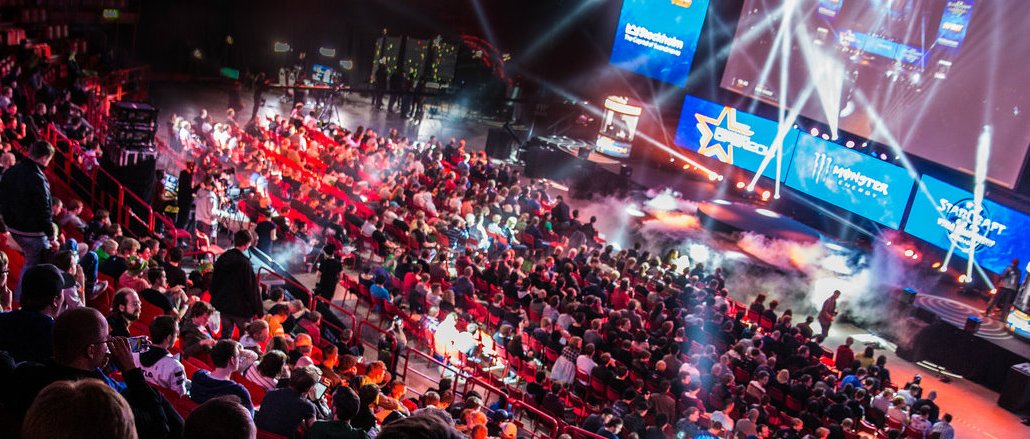
ESports is a booming industry — big enough to warrant its own “SportsCenter”-style news show, according to IGN and Coca-Cola.
The two companies are partnering on “ESports Weekly with Coca-Cola,” a 30-minute digital series that will cover all things happening in eSports. Hosted by IGN’s Kevin Knocke, “ESports Weekly” will recap the top headlines in the industry, feature roundtable discussions about different leagues and tournaments and spotlight top players, teams and events via studio and field segments.
It’s a big project for both IGN and Coca-Cola. The former is a leading authority in gaming and the latter is considered an early adopter among brands in eSports. Both want to build a news video brand that carries the kind of weight and attention given to ESPN’s flagship news show “SportsCenter.”
“In a short amount of time, eSports has become very popular, viewership is through the roof,” said Peer Schneider, co-founder and GM of IGN. “What we haven’t seen is the variety in programming develop.”
According to Schneider, a lot of gaming video content involves live streams of tournaments, “Let’s Play” videos and tutorials. And while companies such as IGN, Twitch and Machinima provide news and commentary around the gaming industry, there isn’t a singular “smart variety program” for fans who don’t have the time to watch every tournament or keep up on all of the most important news.
This isn’t IGN’s first foray into eSports. The company actually ran its own league called the IPL a few years ago, but, according to Schneider, the “market wasn’t ready at the time” for it. “From a sponsor perspective, a lot of mainstream brands didn’t understand what eSports was,” he said. “Obviously all of that has changed.” Now, everyone from Riot Games to TBS is running their own leagues.
Yet IGN doesn’t want to own a league. “[We were] ESPN trying to be ESPN and the NFL at the same time,” said Schneider of the IPL years. “We made the decision that instead of running a league, we wanted to cover [other leagues].”
The eSports market could certainly use its own “SportsCenter.” According to gaming industry research firm Newzoo, around 204 million people either watched or participated in eSports in 2014. That number is expected to grow to 226 million this year. The growing audience is why industry revenues are expected to total $278 million in 2015, up 43.1 percent from last year, and eventually rise to $765 million by 2018.
“We want to create a new watering hole for the eSports community,” said Matt Wolf, head of gaming at The Coca-Cola Company. “Something they can dig into, something that can have real reporting behind it, not fluffy pieces but interesting news stories.”
Coca-Cola is not new to eSports, either. Efforts such as an ongoing sponsorship deal with Riot Games for its popular “League of Legends” tournament series has helped the brand get in front of viewers. The Coke eSports Twitter account has 333,000 followers.
“Hopefully, we have built a [strong enough] relationship with some of these fans where we get to come to the table and they know it’s not a transactional marketing play,” said Wolf. “I’m personally not interested in that.”
The brand will certainly be on display on “ESports Weekly.” Its name is in the title and featured on the studio set and graphics package. But Schneider and Wolf emphasize that the partnership goes beyond a sponsorship deal — Coke is involved in the planning and production of the program.
“We are on the phone with them a lot,” said Wolf. “There is a very cool level of respect between the two groups.”
“Honestly, we wouldn’t have been able to create it without Coke,” said Schneider.
“ESports Weekly” premieres Friday on IGN.com and across the publisher’s mobile and connected TV apps, as well as social channels on YouTube and Facebook. It will air every Friday starting at 7 p.m. EST, with an initial season order of eight episodes, with an opening to do more if the series performs.
Its mobile and TV apps are also becoming huge drivers for video views, accounting for 32 percent of views on its owned and operated properties last month, according to Schneider. It’s one of the reasons why IGN is optimistic about a long-form news and variety show covering eSports. Where a few years ago, IGN’s video content was predominantly short, two-minute clips, it’s now seeing some viewers watch live streams for hours at a time.
“These players are no strangers to watching something they’re passionate about for a long period of time,” said Wolf.
Image via DreamHack / Flickr
More in Media

Meta AI rolls out several enhancements across apps and websites with its newest Llama 3
Meta AI, which first debuted in September, also got a number of updates including ways to search for real-time information through integrations with Google and Bing.

Walmart rolls out a self-serve, supplier-driven insights connector
The retail giant paired its insights unit Luminate with Walmart Connect to help suppliers optimize for customer consumption, just in time for the holidays, explained the company’s CRO Seth Dallaire.

Research Briefing: BuzzFeed pivots business to AI media and tech as publishers increase use of AI
In this week’s Digiday+ Research Briefing, we examine BuzzFeed’s plans to pivot the business to an AI-driven tech and media company, how marketers’ use of X and ad spending has dropped dramatically, and how agency executives are fed up with Meta’s ad platform bugs and overcharges, as seen in recent data from Digiday+ Research.





